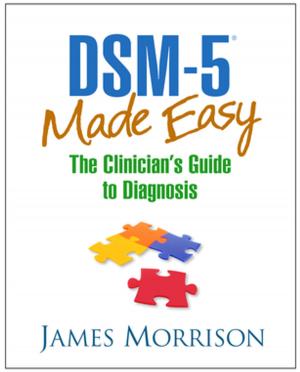Empowerment Evaluation Principles in Practice
Nonfiction, Social & Cultural Studies, Social Science, Methodology, Health & Well Being, Psychology, Research, Reference & Language, Education & Teaching| Author: | ISBN: | 9781462506712 | |
| Publisher: | Guilford Publications | Publication: | March 23, 2012 |
| Imprint: | The Guilford Press | Language: | English |
| Author: | |
| ISBN: | 9781462506712 |
| Publisher: | Guilford Publications |
| Publication: | March 23, 2012 |
| Imprint: | The Guilford Press |
| Language: | English |
What principles should guide an empowerment evaluation? And how can these principles actually be put into practice? One of the primary tasks in an empowerment evaluation (EE) is to increase the capacity of program stakeholders to plan, implement, and evaluate their own programs. This book presents the most current formulation of the 10 principles of EE and provides professionals and students with the tools to put these principles into practice. Through case studies of diverse evaluation projects--including community health foundation initiatives, school district programs, and a $15 million corporate program aimed at bridging the digital divide--the founder and leading proponents of EE clarify key concepts and discuss important lessons learned. Coverage includes how to balance program improvement efforts with accountability requirements; how EE can be used to guide standards-based work; how to use EE in a learning organization; the differences among empowerment, collaborative, and participatory evaluation; and much more.
What principles should guide an empowerment evaluation? And how can these principles actually be put into practice? One of the primary tasks in an empowerment evaluation (EE) is to increase the capacity of program stakeholders to plan, implement, and evaluate their own programs. This book presents the most current formulation of the 10 principles of EE and provides professionals and students with the tools to put these principles into practice. Through case studies of diverse evaluation projects--including community health foundation initiatives, school district programs, and a $15 million corporate program aimed at bridging the digital divide--the founder and leading proponents of EE clarify key concepts and discuss important lessons learned. Coverage includes how to balance program improvement efforts with accountability requirements; how EE can be used to guide standards-based work; how to use EE in a learning organization; the differences among empowerment, collaborative, and participatory evaluation; and much more.















